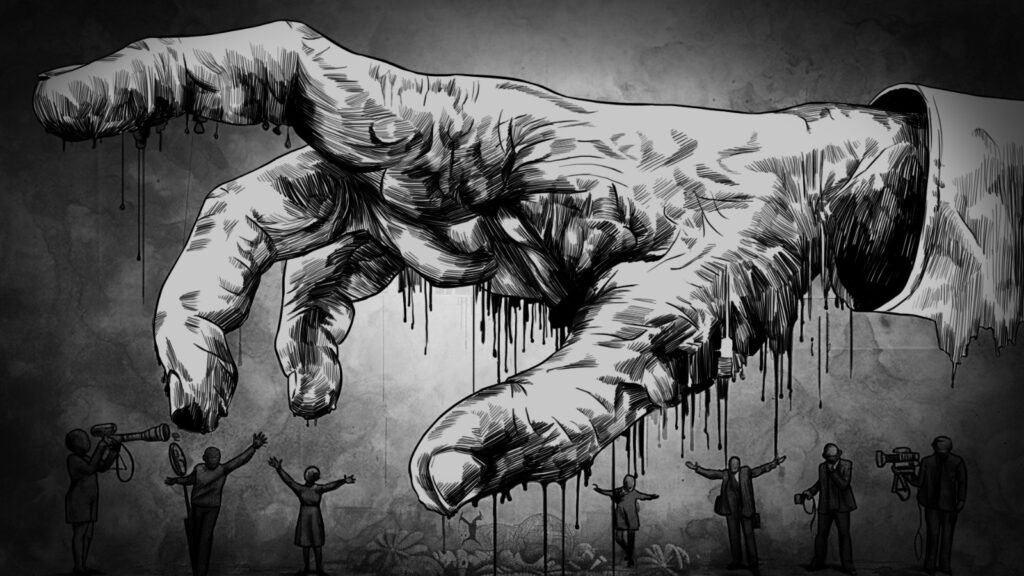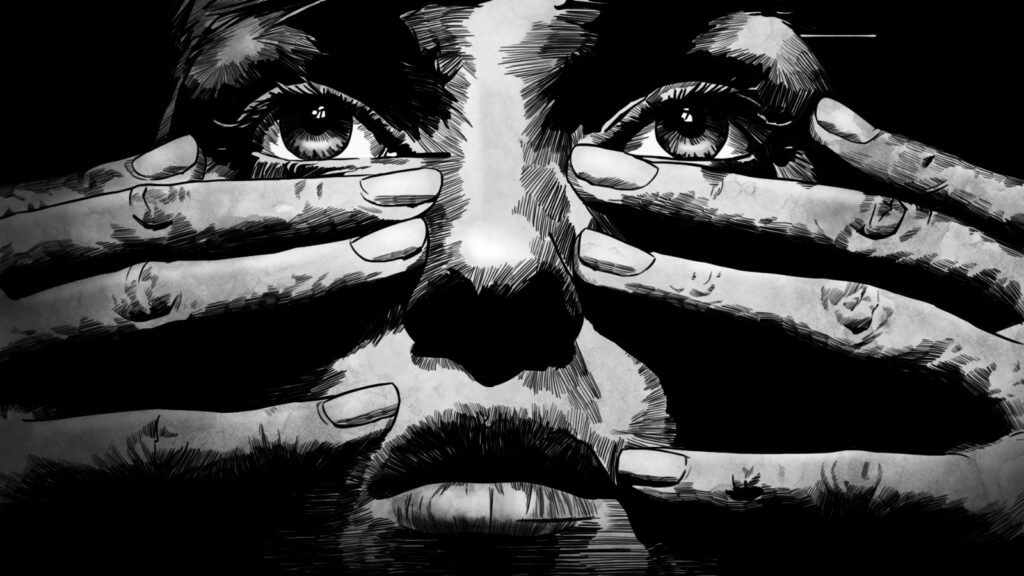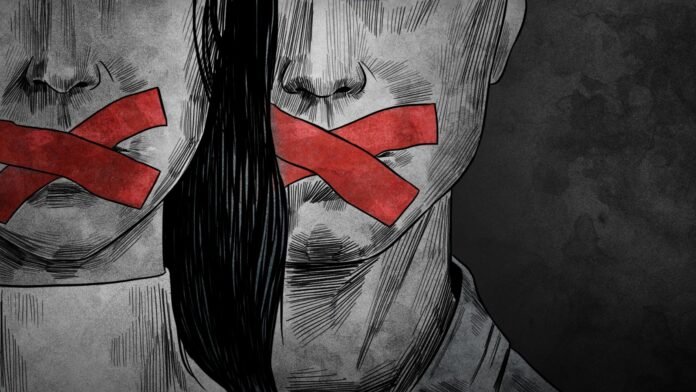I often see my children drawn to animated series and movies produced by Western or Asian companies such as Sony, Disney, DreamWorks, Nickelodeon, Ghibli, Cartoon Network, and others.
These companies produce products unrelated to Islamic, Arab, or regional identity or culture. Therefore, I cannot ignore my duty to monitor what they are exposed to.
I do not deny that the production quality upheld by these companies is the best worldwide; they are excellent models in this industry, which any animation producer aspires to reach. I hope our regional market also develops technically and editorially to stand out.
However, competing with these companies is nearly impossible. At the same time, I do not want my children to be influenced by the values and principles promoted by these companies, which conflict with our principles, culture, and identity.
Today, our children are watching a piglet mock her father when he makes a mistake in Peppa Pig’s cartoon. This starkly contrasts with what we try to instil in our children: “And lower to them the wing of humility out of mercy.”
Not to mention the fairy who relies on magic to ease her life in another cartoon series, Ben and Holly’s Little Kingdom, even though Allah says, “And the magician will never be successful, no matter what amount [of skill] he may attain.”
Many works today glorify pirates, despite the baseness of theft, and recently, they promote same-sex relationships, as in Steven Universe, even though God explicitly condemns them. All of this is presented before our eyes, and controlling what is shown has become almost impossible.
My supervision of what my children watch is personal and stems from parental concern. It comes after the state’s oversight and screening of artistic works imported and distributed in the country.
About half a century ago, Qatar clearly outlined what should be prohibited from publication in Law No. 8 of 1979 regarding publications and publishing, specifically in Articles 46 and 47, ensuring that nothing that harms the country’s policies, economy, or the rights, dignity, and privacy of those living in the country is published.
The law also prohibits publishing “any opinion that mocks or insults any of the divine religions or sects, or incites sectarian, racial, or religious strife,” in alignment with Allah’s words in Surah Al-An’am: “And do not insult those they invoke other than Allah, lest they insult Allah in enmity without knowledge.”
Moreover, the law prohibits publishing “anything that violates morality or offends public decency.” Still, the concept of public decency is not explicitly defined in legal texts and is subject to varying interpretations based on the social and cultural conditions of each society and the opinions of jurists and judges, as explained by Dr Hashim Mansour Nassar in his book The Role of Public Authorities in Classifying Crimes Committed by Public Employees (2018).

Dr. Hashim Mansour points out that “the idea of public decency, similar to the concept of public order, is flexible and difficult to define,” adding that public decency does not necessarily represent all morals but rather refers to a minimum set of ethical rules that are essential for preserving society from decay, which everyone is obliged to respect and not violate.
Differing legal and juristic views on public decency lead to variations in the application of laws in practice, presenting a real challenge for the judiciary in cases involving crimes related to public decency.
Despite the state’s evolving policies in media, culture, education, and development, including the creation, cancellation, or merging of ministries over the decades, the provisions on censorship and prohibited publications under Law No. 8 of 1979 have remained steadfast and enforced, even amid the amendments, decrees, and related decisions enacted over the years.
According to Article 64 of the same law, all these sectors have indeed cooperated to form a committee or specialized committees for oversight. These committees direct the entities responsible for importing and distributing artistic works to provide “artistically, socially, religiously, and morally sound content, preserving the traditions and public decency observed in the State of Qatar and contributing to raising the overall cultural level.”
Despite the openness the state has achieved, three main topics often lead to bans: politically controversial content, religious content that targets deities or prophets, and morally sensitive content, especially of a sexual nature.
Notably, one of the banned books is Dr Moza Al Jaber’s doctoral thesis, Economic and Social Development in Qatar, between 1930 and 1973 (2002), which was the basis for her academic degree and is considered an analytical academic reference for modern Qatari history.
Engineer Hani Al Khurraz mentioned on his X platform account that a consultant from the Ministry of Culture clarified that “the book is banned from being published in libraries and book fairs, but no one has the right to confiscate it from any reader who orders it through online stores.”
In recent years, several films were banned due to characters or messages promoting homosexuality, including the film Lightyear (2022), a part of the Toy Story series produced by Pixar, which depicted a love relationship between two women while exploring the backstory of Buzz Lightyear, as reported in Variety. This led to the film being banned or withdrawn from cinemas in many countries, including Qatar.
The film Doctor Strange in the Multiverse of Madness (2022) by Marvel was also banned, as noted by the Hollywood Reporter, in Saudi Arabia, Kuwait, and Qatar because of the appearance of a new homosexual character, as homosexuality contradicts public decency, leading to the ban of films featuring morally deviant themes.
Censorship is no longer as straightforward as it once was. Today, broadcasting technology has reached unprecedented heights, and information has become accessible to everyone. With the advent of the Internet, everything is available to children and adults alike, and media is no longer the exclusive domain of any single authority.

In his book Media Studies 2.0 (2014), William Merrin stated that we live in a constantly evolving modern media world. What we were born with and knew in our childhood has become traditional. Modern media no longer distinguishes between sender and receiver, giving anyone the opportunity to broadcast to anyone. This creates a new broadcasting model that invalidates many of the rules and media theories recorded in books and by media scholars during the latter half of the twentieth century.
The West colonized Islamic countries for many years, and today we live in a post-colonial era where we cannot take a step without the approval of countries that claim to be great, developed, and superior, leaving us as small, developing, and third-world countries, imitating them in every little and big thing. We build our houses as they do, plan our cities as they plan theirs, dress as they dress, eat fast food as they do, teach our children their language, and even celebrate their holidays. We have lost our identity, and generation after generation, we forget who we are and do not care about what happens to us.
I do not deny that modest efforts are made to produce Islamic content. Still, they do not reach the level of Western production nor compete with non-Islamic content on the regional or local level. The nature of the Western market allows financially and intellectually supported productions to rise and reach global levels, unfortunately sneaking into our homes before our eyes and against our will. How can we replace them with content that aligns with our culture, educationally and morally, at least matching the quality and approach of what the West offers?
I once had the opportunity to collaborate for an entire year with the Qatar Foundation during the transformation of Al Jazeera Children’s Channel into JeemTV. Before this step, the channel was distinguished by its outstanding production in simplified Classical Arabic for children. A partnership was formed between all schools in Qatar and the channel, allowing students to showcase their talents on screen, which enhanced their communication and creativity skills.
However, with the launch of JeemTV, the channel unfortunately expanded into acquiring Western children’s programs with sometimes alien values. Worse, these ideas were subtly passed on in a refined manner through translation and dubbing, accompanied by the deletion and trimming of socially unacceptable segments, resulting in morally weak and artistically subpar content.
To one day elevate our media production, we must first define the features of our Islamic culture, the educational values that need to be ingrained in our children’s minds, and the appropriate artistic elements for each age group. We should not ignore Western efforts but rather benefit from their examples, which can guide us toward achieving our aspirations.




